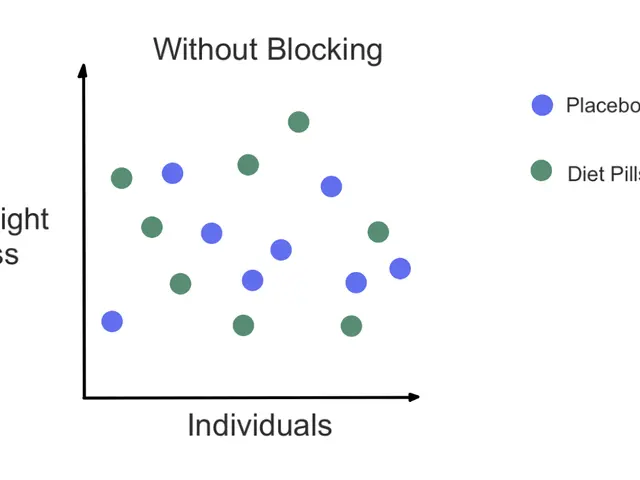Strategies for Halting and Preventing Atrial Fibrillation Episodes:
In the management of Atrial Fibrillation (AFib), a common type of irregular heartbeat, a combination of home remedies and lifestyle changes is often recommended in conjunction with professional medical care.
### Home Remedies and Lifestyle Changes
Dietary supplements, such as fish oil rich in omega-3 fatty acids, are often suggested to reduce inflammation, stabilize arterial plaque, improve blood flow, and support cardiovascular health. However, it's essential to use these supplements under medical supervision, as they may not be suitable for everyone and could potentially worsen AFib in some cases.
Magnesium and potassium supplements may help support normal heart rhythm, but they should be taken only after consulting a healthcare provider.
Stress management and mindfulness techniques, including meditation, yoga, or other relaxation methods, can reduce stress, a known trigger of AFib episodes. Regular exercise, maintaining a healthy weight, following a heart-healthy diet, limiting or avoiding alcohol and caffeine intake, and quitting smoking are also recommended heart-healthy lifestyle changes.
### When to Seek Medical Advice
Individuals with AFib should promptly consult a doctor when experiencing new or worsening symptoms such as irregular or very fast heartbeats, fluttering or thumping sensations in the chest, or unusual weakness, dizziness, or confusion accompanied by an irregular heartbeat. If lifestyle adjustments and supplements do not control the condition or symptoms worsen, immediate medical attention is necessary.
Regular monitoring of the condition is essential to prevent complications like stroke or heart failure. This can be done through in-person or telehealth appointments. In some cases, medications or medical procedures (such as cardioversion or ablation) might be needed to control heart rhythm or prevent blood clots.
### Summary
Effective management of AFib involves lifestyle changes (exercise, diet, stress reduction), cautious use of supplements (fish oil, magnesium), and avoidance of triggers (alcohol, caffeine). Regular medical follow-up is crucial, especially if symptoms worsen or new symptoms arise, so that tailored treatment plans and possible medical interventions can be implemented to reduce risks and improve quality of life.
Anyone who has symptoms of AFib should contact a doctor as early as possible, as AFib can lead to serious complications. Obesity can be a risk factor in the incidence and progression of AFib. A doctor may prescribe medications to keep a person's persistent AFib under control. Some cases of AFib can be managed at home with lifestyle changes and home remedies.
- Obesity can increase the risk of developing Atrial Fibrillation (AFib), a common type of irregular heartbeat, and may contribute to its progression.
- In managing AFib, predictive measures should be taken to address mental health concerns, such as depression and bipolar disorder, as they can exacerbate the condition.
- Chronic diseases like diabetes and sleep disorders also need consideration when managing AFib, as they can impact cardiovascular health and weight management.
- Type 2 diabetes, a common complication of AFib, requires careful management to prevent worsening heart-related symptoms and to maintain overall health-and-wellness.
- Although stress management techniques and fitness-and-exercise are crucial in the management of AFib, they should be part of a comprehensive approach to physical and mental health.
- When experiencing symptoms such as skin issues, it's essential to consult a healthcare provider to ensure that any therapies-and-treatments chosen will not contribute to or worsen AFib-related complications.
- nutrition plays a vital role in cardiovascular health, and maintaining a balanced diet is important in managing AFib and preventing related chronic diseases like type 2 diabetes.
- In the workplace, implementing wellness programs can encourage employees to prioritize fitness-and-exercise, weight-management, and mental-health support, benefiting overall health and well-being.
- Personal-finance and budgeting should be considered when planning for and implementing workplace wellness programs, ensuring that they are accessible and affordable for all employees.
- Individuals with AFib should be aware of the potential impact of chronic respiratory conditions like COPD on their heart health, seeking regular medical attention to prevent complications.
- Some cases of AFib may require financial assistance for necessary treatments, medications, or medical procedures like cardioversion or ablation.
- It's essential to maintain regular follow-up appointments with healthcare providers to monitor conditions like AFib and ensure that any needed therapies-and-treatments are effective and well-tolerated.
- Engaging in self-care practices, such as skin-care routines, meditation, or hobbies, can support overall well-being and help manage stress levels, contributing to a more balanced lifestyle while managing AFib.





